Gartner
Latest
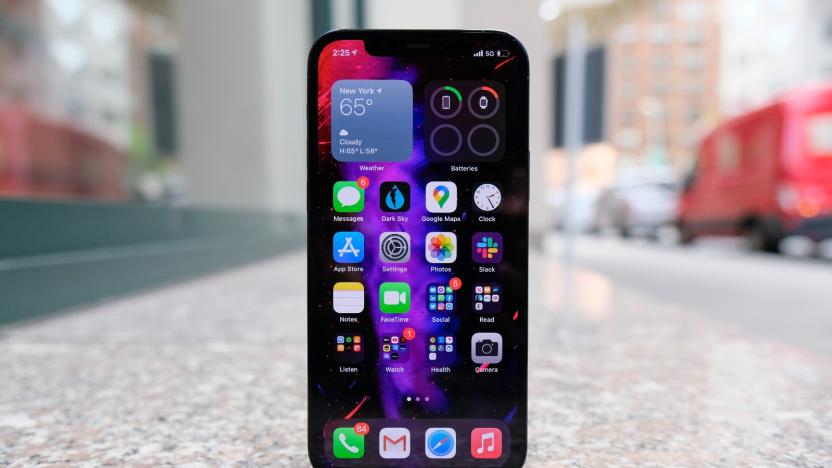
iPhone 12 shipments put Apple ahead of Samsung for the first time since 2016
Thanks to nearly 80 million shipments, the iPhone had one of its best quarters in history.
Igor Bonifacic02.22.2021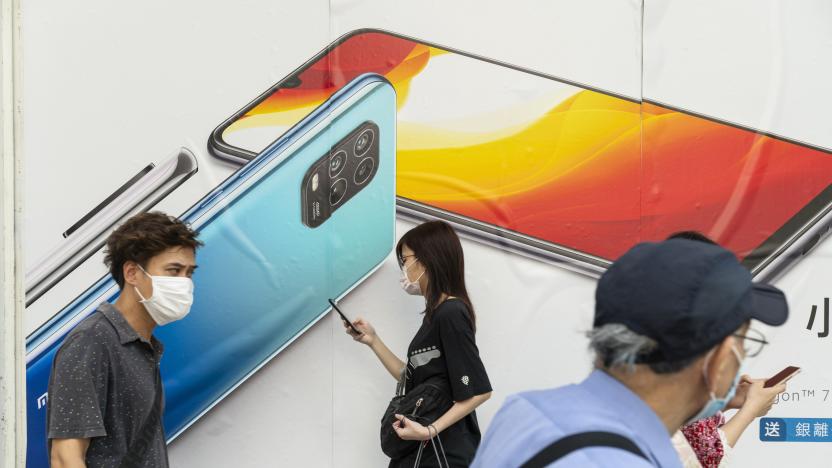
Xiaomi overtook Apple in smartphone sales last quarter
Xiaomi has overtaken Apple in smartphone sales as the industry bounces back from the pandemic's initial blow.
Jon Fingas11.30.2020
Worldwide PC shipments grew due to work-from-home arrangements
The PC industry bounced back in the second quarter of 2020 after its weakest quarter in years mostly due to shelter-in-place orders prompted by the coronavirus pandemic. According to both Gartner and IDC, PC shipments grew year-over-year in the second quarter — the former says shipments totaled 64.8 million units (a 2.8 percent increase from Q2 2019), while IDC says global shipments reached 72.3 million units, which is 11.2 percent higher compared to the same period last year. Both organizations attribute the growth to PC production ramping up after supply chains were disrupted in the first quarter and to strong demand, now that more people need computers to work or study from home.
Mariella Moon07.10.2020
PC sales experienced annual growth for the first time in years
2019 was the first good year for the PC industry in a long while, according to both Gartner and IDC. It's the first time in seven years that the global PC market has experienced growth for the full year, Gartner says. IDC reported a similar finding, specifying that 2019's results show the first full year of PC growth since the market grew by 1.7 percent way back in 2011.
Mariella Moon01.14.2020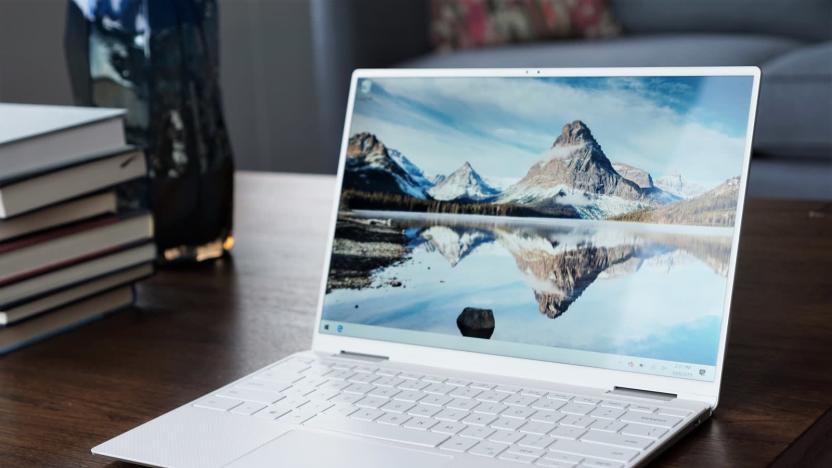
PC sales are growing despite processor shortages
It's been a challenging year for PC sales, with rising competition from mobile devices and a trade war between the US and China causing supply chain issues. Despite that, a report from IT research firm Gartner shows that worldwide PC sales actually grew slightly, rising by 1.1 percent in the third quarter of 2019.
Georgina Torbet10.11.2019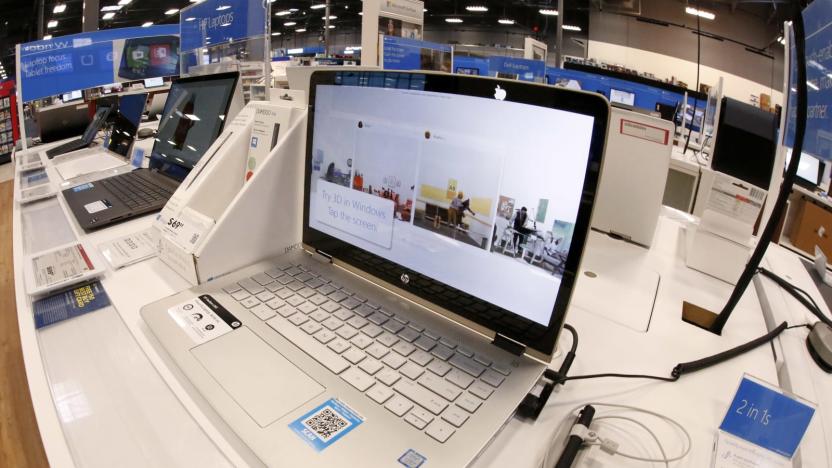
Lenovo fuels the first PC sales increase in six months
The PC market has been pretty gloomy of late, but global shipments went up by at least 1.5 percent after two down quarters, according to Gartner and IDC. Lenovo led the pack with a 25 percent share, followed by HP and Dell with 22.2 and 16.9 percent, respectively. The growth was driven in part by the latest Windows 10 refresh and an easing of the Intel CPU shortage, which has adversely affected PC sales for the last 18 months.
Steve Dent07.12.2019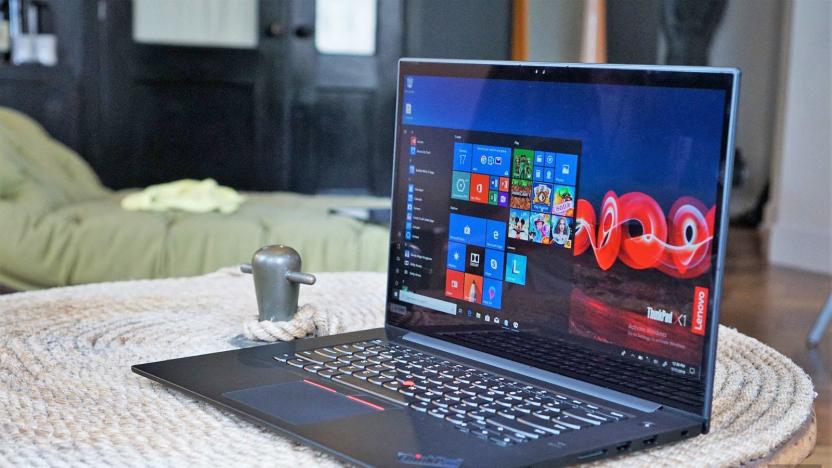
Lenovo retakes the top spot in PC shipments
Happy days are here again for Lenovo, though not for most of the PC industry. The Chinese tech firm has reclaimed the top spot for PC shipments in both Gartner and IDC market share estimates for the third quarter of the year, pushing past HP to scoop up roughly 24 percent of the market. The analyst groups chalked up the growth to both the addition of Fujitsu, better business PC sales and a smarter North American strategy. For most others, though, the season was a mixed bag.
Jon Fingas10.10.2018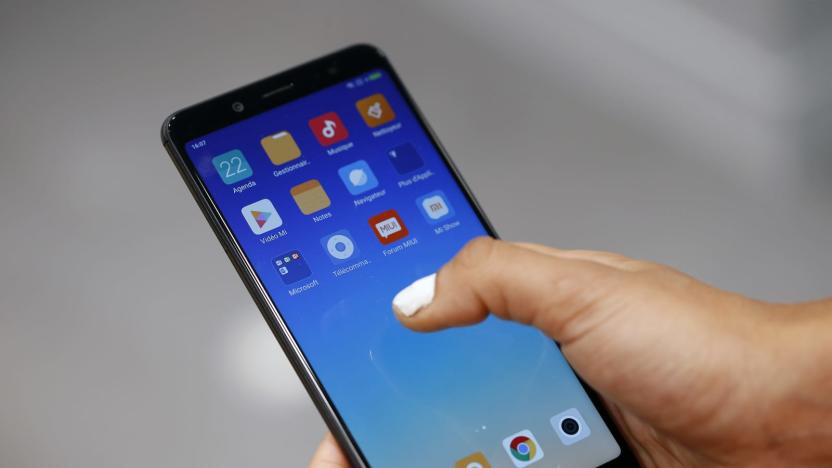
Global smartphone sales recover from a months-long slump
Smartphone sales shrank year-over-year in the fall, leading some to wonder whether the category's halcyon days were finally over. Well, not quite. Gartner has determined that smartphone sales bounced back ever so slightly in the first quarter of 2018, growing 1.3 percent over the same period a year earlier. Don't credit that to hot flagship phones like the Galaxy S9 or iPhone X, though -- if anything, it came in spite of those high-priced devices.
Jon Fingas05.29.2018
Dell was the bright spot in a lousy winter for PC shipments
Sorry, folks, those hopes of the PC market making a comeback were short-lived. Both Gartner and IDC estimate that computer shipments were down in the first quarter of 2018, ranging from barely under zero growth (IDC) to a drop of 1.4 percent (Gartner). While the exact numbers vary (Gartner includes more tablets in its data than IDC, but not Chromebooks), there are some common themes. In particular, Dell came to the industry's rescue -- it was one of the few bright spots in a market where rivals either saw sluggish growth or declined.
Jon Fingas04.11.2018
Part shortages thwart the PC's sales recovery
So much for the PC industry bouncing back after years of decline. Analysts at Gartner and IDC estimate that computer shipments fell between 3.3 and 4.3 percent in the second quarter, resuming an otherwise unbroken slump. However, the drop wasn't due to the usual issues, like the rise of smartphones -- it was the knock-on effect of part shortages that killed dreams of a recovery. Component companies raised prices on parts like solid-state drives and LCDs to keep the supply-and-demand balance in check, and the resulting price hikes at some PC vendors led to people staying away.
Jon Fingas07.12.2017
The PC's 5-year slump might be coming to an end
For the past several years, the PC market has largely told the same dismal story: shipments are down, mobile is taking over the world, and there's no relief in sight. However, there's a glimmer of hope... depending on who you ask, anyway. IDC estimates that PC shipments increased by 0.6 percent year-over-year in the first quarter of 2017, marking the first such growth in 5 years. Reportedly, that's due to both better-than-expected shipments in multiple regions as well as strong commercial Chromebook sales in the US (think schools and businesses). It's cheerful news for the industry if accurate -- with that said, Gartner's researchers might just temper your enthusiasm.
Jon Fingas04.11.2017
PC shipments were still in the pits this holiday
So much for the PC world recovering from 2015's holiday disaster. Both Gartner and IDC estimate that worldwide computer shipments were down year-over-year in the fourth quarter of 2016. The decline wasn't nearly as bad as it was a year ago (1.5 percent with IDC's methodology, 3.7 percent with Gartner's), but that's not saying much -- it just means that the industry didn't stay in freefall for long. Just why things turned out so glum varies depending on who you ask, though.
Jon Fingas01.11.2017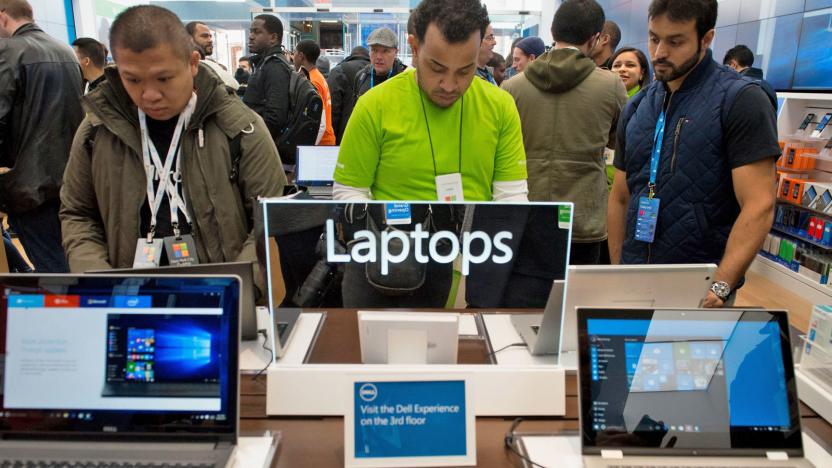
PC shipments recover in the US
It's not all doom and gloom in the PC world... for once. Both Gartner and IDC estimate that PC shipments actually grew in the US for the first time in over a year, climbing in the second quarter by either 1.4 percent according to Gartner (which includes Windows tablets) or 4.9 percent if you ask IDC (which doesn't). There's no one answer as to why the computer industry is bouncing back, regardless of who you ask. A stronger US economy is playing a part, but the analyst groups also point to strong Chromebook sales to schools as well as a possible spike in purchases from governments and other public outfits.
Jon Fingas07.11.2016
Analysts predict the end of the smartphone boom
Gartner's latest research into the state of the mobile industry is a dire warning to all phone manufacturers. The financial analysis firm believes that the growth in smartphone sales will fall to a single digit, half the rate it was in 2015. It's hard to think that people buying 1.5 billion devices in a calendar year is a bad thing, but for companies who make profit on scale, it's a nightmare. Last year, LG made just 1.2 cents in profit for every phone it sold, and you need to sell a lot of phones at that cost before you can consider yourself a big deal.
Daniel Cooper06.07.2016
Windows Phone sales have almost ground to a halt
Gartner has released its smartphone stats for Q4 2015 and the news is especially bad for Microsoft. In Q4 2014, the software giant owned 2.8 percent of the smartphone market -- not great, but still good enough for around 10 million units sold. In the same quarter of 2015, however, Windows Phone sales fell to 4.4 million, giving the OS a mere 1.1 percent of the total market. That means that it's basically in a death spiral, as consumers and app developers alike lose interest. Microsoft's rumored Surface Phone now looks like its last hope to rescue the division.
Steve Dent02.19.2016
PC shipments see their steepest drop ever
Windows 10 might be pretty popular, but it wasn't popular enough to rescue the PC business. IDC estimates that computer shipments actually fell 10.6 percent in the fourth quarter of 2015, making it the steepest year-over-year drop in history. In fact, shipments were scarcely any better than they were in the summer, when sales are supposed to be slower. Gartner's figures are slightly better, although the 8.3 percent drop is nothing to write home about.
Jon Fingas01.12.2016
Windows 10 didn't stop PC sales from dropping this summer
Windows 10 may have breathed new life into your PC, but it didn't do anything to juice PC sales this summer. Both Gartner and IDC estimate that computer sales dropped several points year-over-year (between 7.7 and 10.8 percent) in the third quarter, right when the new Windows arrived. That's one of the steeper drops in recent memory, in fact. Not that it comes as a complete surprise. As the analyst firms explain, Microsoft's fast-tracked release left many PC makers shipping existing systems with Windows 10, which weren't going to drive demand as much as brand new models. You're not going to buy a months-old laptop just because it's running new software, are you? The big question is whether or not the wave of new Windows 10 PCs launching this fall will make a difference -- if there's still a sharp decline, the industry is really in trouble.
Jon Fingas10.10.2015
The worldwide smartphone market is slowing down
There's a statistic floating around that says that nearly everyone on Earth has a smartphone, but just over half of them have access to proper sanitation. Between that stat and this report from Gartner, it looks as if a great many smartphone makers should think about starting their own toilet-making businesses. The research firm believes that while the smartphone market is still growing, that rate of growth has now dropped back to 2013 levels. That's because China, long-regarded as a rich seam of un-tapped phone buyers has been exhausted, which is what's prompted these firms to turn to India and Africa. If that all sounds a bit too business-y, here's the simplified version: everyone who can buy a smartphone already has one, and those people who don't probably can't afford them.
Daniel Cooper08.20.2015
Acer feels the pain of the PC's decline
Analysts believe that the PC has had its day in the sun, and now, we've got another shred of proof to toss into the dossier. Acer, the world's fifth-largest PC maker, has revealed that its revenues fell by the better part of 30 percent in the second quarter of the year. The terse announcement wasn't supported by a full earnings release, but the figures mean that this period has been the company's smallest quarter since 2006. The spreadsheet may be missing, but Digitimes is reporting that Acer is betting on Chromebooks, 2-in-1 and gaming laptops will restore the firm to profitability.
Daniel Cooper07.13.2015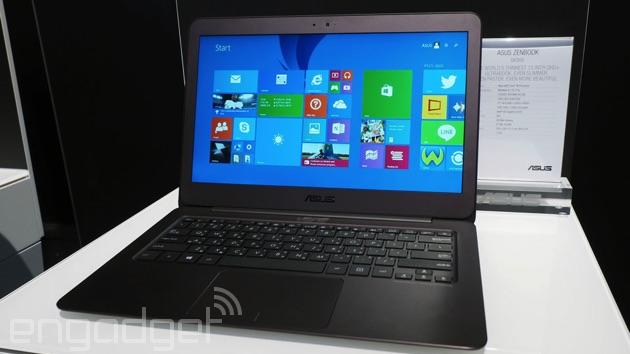
The PC market is shrinking again as companies stop upgrading
It's not a good time to be a PC maker... especially if you cater to the corporate crowd. Both Gartner and IDC estimate that the computer market shrank between 5.2 to 6.7 percent in the first quarter of 2015, in part because many companies stopped upgrading from Windows XP. Simply put, many of the businesses that wanted to modernize already have -- they're not propping up the market like they were for a good chunk of 2014. IDC goes so far as to claim that this was the lowest volume of PC shipments since the start of 2009, which is no mean feat given that the world was still reeling from an economic collapse at the time.
Jon Fingas04.12.2015